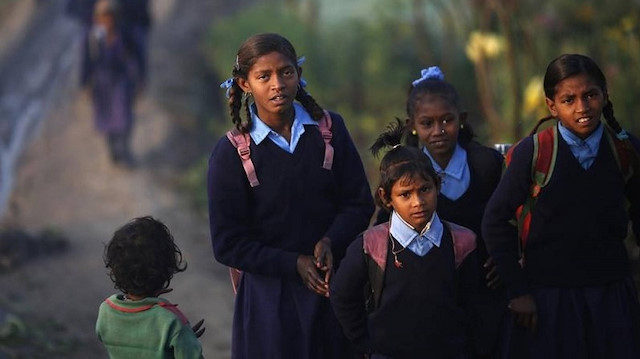
Concerned about producing a generation of children with hunched backs and other spine problems, India has denounced schools for making students carry heavy school bags and giving young children homework.
The government has issued weight guidelines for school bags depending on a child's age, citing studies that show how the load can affect soft, developing spines.
One survey done by the Associated Chambers of Commerce and Industry of India found that 68 percent of pre-teen children might suffer from mild back pain, which can develop into chronic back pain, and later into a hunchback.
The study, which covered more than 2,500 children and 1,000 parents in major cities, found that more than 88 percent of children from seven to 13 carry more than 45 percent of their body weight on their backs.
Rashmi Tapke, a mother of two, said heavy school bags reflect poor time-table planning and said she supports the federal initiative.
"If they (schools) plan, they can repeat the subjects taught and thus reduce the load. My kids find it difficult to carry so many books," Tapke, whose children attend a private school in Mumbai, said.
The state of Maharashtra, where Mumbai is located, mandates that the weight on the bag should not exceed 10 percent of the child's body weight. Many schools there have started using white boards and projectors to ensure text books are not required to be carried to school.
But in large parts of rural India, children have to walk great distances, weighed down by school bags. Children have been known to ford rivers, some with books on their heads, to get to school.
"My frail daughter has to haul about 4-5 kgs of books in her school bag and also carry her lunch box and water bottle in a separate bag," said driver Rajinder Shukla, whose child attends a school in most populous Uttar Pradesh state.
The federal circular also suggests that no home work be assigned to kids in grades 1 and 2 which will also ensure they don't need to carry books home.


